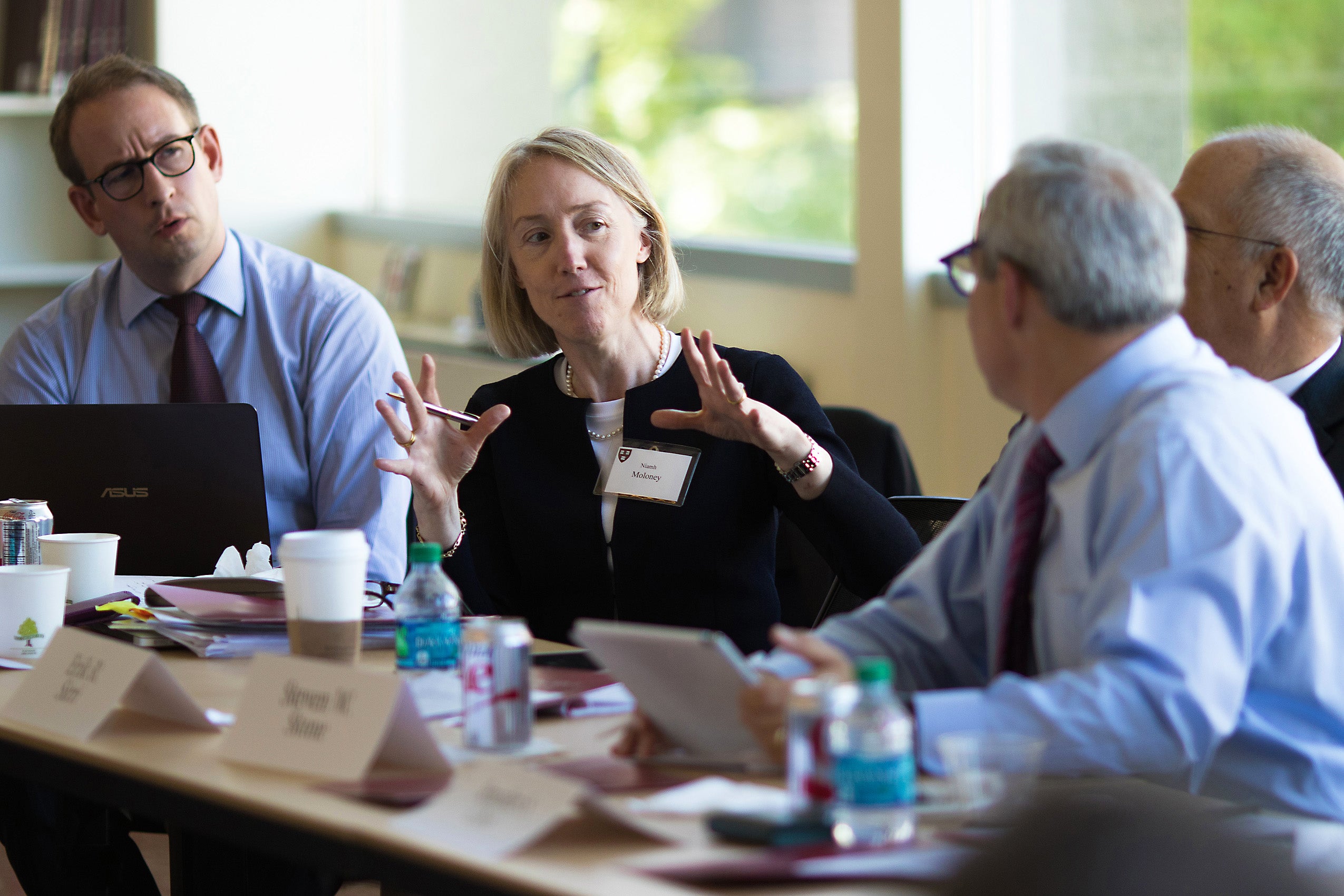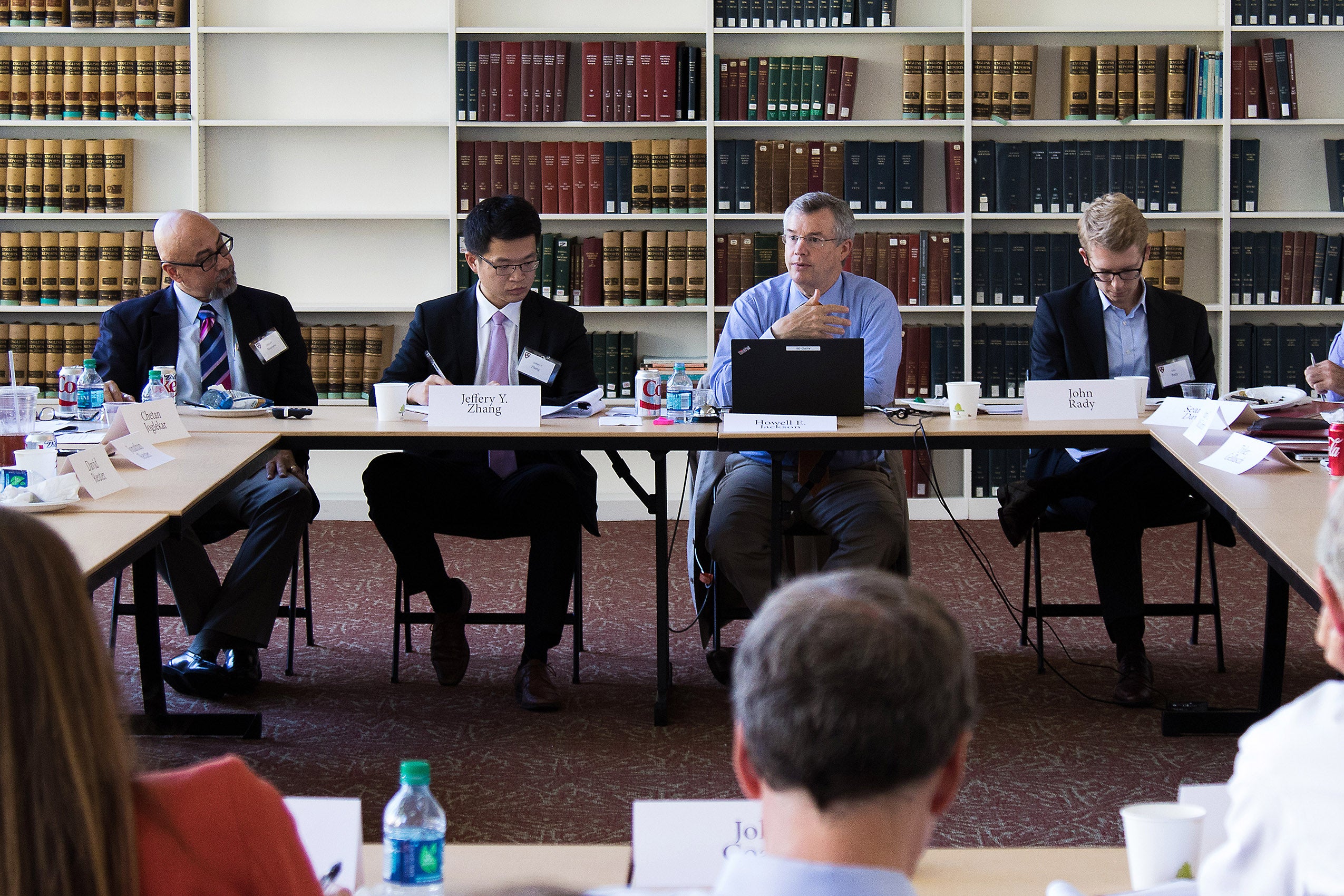On January 3, 2018, the world will change, according to Professor Howell Jackson J.D./M.B.A. ’82. That is the day that the second iteration of the Markets in Financial Instruments Directive — a set of European Union financial regulations that emerged in the wake of 2008, known colloquially as MiFID II — will go into effect.
This impending change prompted Jackson to bring together a variety of experts — legal academics and economists as well as representatives from financial regulators and investor interest groups — for a roundtable conversation Sept. 28 to discuss the implications. The conference was organized by Jackson with support from Harvard Law School’s Program on International Financial Systems (PIFS).
MiFID II was designed to increase market transparency and give investors the information necessary to hold asset managers and brokerage firms for their fees and practices. This roundtable focused on one component of the regulation: the unbundling of execution and research fees, called “soft dollars.”
Under current market practices, when an investor or asset manager pays a commission to a broker to execute a trade, only part of that fee actually represents compensation for the trade. The remainder is funneled to research — market reports, data services and access to high-level individuals in companies and government — that brokers provide to the investors with whom they trade. This research acts as an incentive for investors to channel trades through those brokers, regulators argue, which can prevent investors from getting best execution.
Under the new rules, asset managers in Europe will be required to pay separately for trade execution and research and also to disclose these costs to investors.
“People are really scrambling to figure out how the rules are going to work, so there was a lot of interest in the topic,” Jackson noted.
The roundtable began with a discussion of the traditional market practice of bundling fees for execution and research services and then delved into the changes that MiFID II will bring to financial markets, the implications for firms operating globally and the potential for similar reforms to be implemented in the United States.

Jackson noted that the change in Europe could force a similar unbundling in the United States. As global firms are required to provide information about fees to European and develop the systems and practices necessary for compliance, it becomes difficult to deny that same information to investors in the United States or argue to U.S. regulators that the cost of adjusting to a new regulatory scheme would be burdensome.

But Jackson stressed that the issue is contested, raising the importance of the diverse perspectives on the panel. For example, he noted, some individuals raised concerns that “the research that’s produced is valuable, and it won’t be produced at the same levels if it’s transparent what the price is.”
From his perspective, though, transparency wins the day. “If you look at the research that’s being produced with these bundled commissions, it’s not obvious that it has such a high utility, and it may just be increasing the profit margins of the securities firms and asset managers that are using this kind of payment.”
